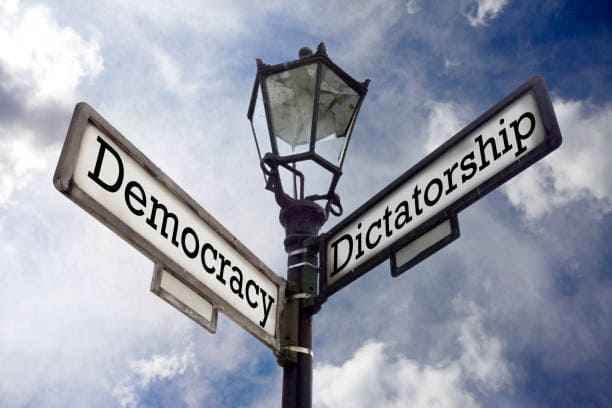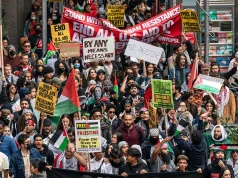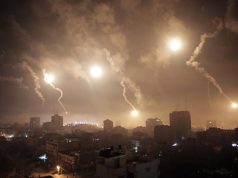By Moshe Shafer
In a world where democratic and dictatorial states coexist, numerous moral and strategic questions arise. Democracies, which promote values such as freedom, equality, and human rights, are forced to confront a complex reality where dictatorial regimes exploit democratic advantages, including free trade and freedom of expression, to advance their own goals. This situation requires democratic countries to reconsider their policies, especially when it comes to maintaining moral values in the face of global and regional threats.
Exploiting Democratic Advantages and the Use of Funds
Many dictatorships, such as China, Russia, and Iran, take advantage of the benefits present in Western democracies, particularly free trade and freedom of expression, to promote their interests. They do this while imposing severe restrictions on free trade and suppressing freedom of expression within their own borders. For example, many Chinese companies operate freely in Western markets, generating substantial profits that are directly funneled back to the state, which in turn continues to oppress human rights.
Some believe that boycotting a company that has not been proven to violate human rights itself is an infringement on the free trade values of democracies. However, the situation is more complex. For example, a Chinese company operating in the United States or Europe may appear to act in good faith, but when its profits return to the Chinese government, which continues to violate human rights, it becomes an indirect accomplice to these violations.
As the philosopher John Stuart Mill said, “My freedom ends where the freedom of others begins.” Morality obliges us to consider not only direct actions but also their indirect consequences.
To address these situations, democracies should impose stricter sanctions, such as requiring foreign companies involved with dictatorial regimes to move their headquarters to a democratic country, pay taxes there, and completely sever ties with the dictatorial regime. This approach does not harm free trade but rather protects it by ensuring that all players in the international market adhere to the same moral standards.
The Use of Funds: Investing in Citizens vs. Military Armament
In democratic countries, public funds are often invested in the welfare of citizens, such as infrastructure, education, healthcare, and transportation. These investments reflect a commitment to democratic values and the well-being of all. In contrast, dictatorial states tend to allocate significant funds to military and security needs, aiming to maintain power and increase their military strength. North Korea is a classic example of a state that channels most of its resources into military armament while brutally suppressing its citizens.
The massive investment of dictatorships in military armament enables them to adopt an aggressive approach on the international stage, imposing their interests at the expense of democratic states that are not interested in military escalation. Therefore, in situations of military conflict, democratic countries should consider acting according to the conditions set by the dictatorship, rather than fighting based solely on democratic principles, especially when it comes to protecting then security of citizens.
Dictatorships and Combat Tactics: The Struggle Beyond the Rules of War
Another consideration is the way in which dictatorships conduct warfare. Countries like Russia and Syria, for example, disregard international rules of war and do not hesitate to attack civilians, use chemical weapons, and blatantly violate human rights. While democracies are compelled to adhere to laws and regulations, dictatorships exploit this to increase their strategic advantage.
In this context, a change in approach is also required. As Winston Churchill said, “There is no point in being decent when fighting against indecent people.” When dictatorships choose to ignore international rules, democratic countries must be prepared to adjust their military strategies, at least when necessary, to protect their citizens and democratic values. This does not mean breaking the law, but rather enforcing the law with the same force that the enemy disregards it.
Freedom of Expression as a Tool for Dictatorial Use
Dictatorships also use the freedom of expression present in democracies to spread disinformation and influence public opinion in democratic countries. An example of this is Russia’s and China’s interference in the U.S. elections by using social media to spread fake news and amplify internal disputes.
In this situation, democracies are forced to consider how to protect themselves from the misuse of the freedoms they themselves uphold. To address this challenge, democratic countries need to develop systems to control the spread of disinformation without harming legitimate freedom of expression. This is a complex and challenging process, but it is essential for preserving democratic values and internal stability.
Philosophical Discussion: Morality and Freedom in a Complex World
These disputes require us to grapple with complex moral questions. Thinkers like John Rawls have pointed to the need to balance justice and freedom. Rawls argued that “justice is the first virtue of social institutions, as truth is of systems of thought.” According to this view, the preservation of freedom cannot exist without justice. When justice is violated—whether through human rights abuses or the misuse of freedoms—true freedom does not exist.
This approach reflects the need for democratic countries to be willing to impose restrictions on economic or political freedoms when necessary to protect other moral values. It is an understanding that morality requires not only the preservation of freedoms but also their limitation when they are misused. As Thomas Jefferson said, “When justice is gone, liberty cannot exist.”
Conclusion: Democratic Leadership in the Test
In this reality, the United States, as a leader of the Western world, must take a leading role in the struggle against dictatorial states like China, Russia, Iran, and Qatar. It should implement a decisive policy that sets clear boundaries against acts of oppression and human rights violations and lead the Western world in ways that protect the values of freedom, equality, and justice.
This moral and strategic challenge is a test of the resilience of democracy against dictatorial forces. Democracies must uphold their values while exercising effective moral and economic power to maintain freedom and justice in a constantly changing and challenging world.
__________________________
Moshe Shafer is a journalism student in Jerusalem, Israel.




